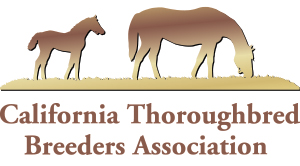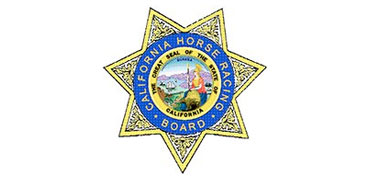From CHRB
ARCADIA, Calif. (Mar. 17, 2023) — The California Horse Racing Board conducted a meeting on Thursday, March 16, 2023, at the Le Meridien Hotel in Arcadia. Chairman Gregory Ferraro chaired the meeting, joined by Vice Chair Oscar Gonzales and Commissioners Dennis Alfieri, Damascus Castellanos, Brenda Washington Davis, and Thomas Hudnut.
The audio of this entire Board meeting is available on the CHRB Website (www.chrb.ca.gov) under the Webcastlink. In brief:
- At the request of the Thoroughbred Owners of California (TOC) and racetracks, the Board approved a redirection of revenue from Advance Deposit Wagering that would normally go to thoroughbred purses and commissions in order to pay the balance of California’s 2023 fee to the Horseracing Integrity and Safety Authority (HISA). In expectation that step two of HISA’s program will go into effect as scheduled on March 27, California’s proportional share of HISA’s operating budget is $6,729,297. Largely through the efforts of CHRB staff, HISA is crediting California for the equine drug testing and research program that California will continue to pay for and perform on behalf of HISA, as well as sample collection, out-of-competition testing, and investigations, reducing the fee to $1,579,297. CHRB Deputy Executive Director Cynthia Alameda has been a principal in this cooperative effort with HISA. Commissioner Davis thanked CHRB Executive Director Scott Chaney and staff for a “job well done” in obtaining the credits.
CHRB and industry leaders helped guide HISA in the drafting of rules covering safety and drug testing, so HISA’s rules largely reflect California’s existing program, meaning California licensees will not experience much change under HISA. However, in his report to the Board, Chaney pointed out one major difference. Under HISA, which only regulates thoroughbred racing, any drug testing positive on a post-race sample will result in the automatic disqualification of the horse and redistribution of the purse. The applicable HISA rules under section 3220 are Rules 3221 and 3321, Disqualification of the Covered Horse Results (a) Automatic Disqualification of Results.
Currently in California, disqualification only occurs for the most serious Classes 1, 2, and 3 infractions. Under HISA after March 27, what California classifies as Classes 4 and 5 violations also will require disqualification. Dr. Jeff Blea, the CHRB’s equine medical director, reported there were four Class 4 violations (for methocarbamol and phenylbutazone overages) in January and February, but as those were out-of-competition samples, not post-race, there was no race result from which they could have been disqualified under HISA even had they occurred after March 27.
- Staff reported on the possibility of asking the Board to strengthen the CHRB’s existing Inclement Weather Policy, primarily to further limit training activities on the main track and training track after inclement weather has forced those surfaces to be sealed (packed down to prevent seepage of water into the cushion). Training is the major focus because far more horses exercise in the morning than race in the afternoon and night, so training poses the greatest risk when surfaces have been unsealed but not yet fully settled. California racing executives have voluntarily canceled more than a dozen racing programs this year due to heavy rains.
- After stakeholders in Northern California reported they had not been able to reach agreement over a disputed week of racing despite months of negotiations, the commissioners made the decision for them by allocating the fourth week of August to both Golden Gate Fields and the Humboldt County Fair, meaning both tracks will run racing programs simultaneously (overlapped) in 2023. Vice Chair Gonzales cast the only negative vote in that decision. This action finalized all 2023 dates allocations in the state.
- The commissioners voted to withdraw their support for legislation, at least for this year, which would provide greater statutory funding for jockey welfare and backstretch medical services after representatives of the Jockeys’ Guild and California Thoroughbred Horsemen’s Foundation reported they will have sufficient funding for at least one or two more years, largely through assurances by the TOC and other supporters.
- Chaney reported on progress to hinder match racing at non-sanctioned locations in California. People for the Ethical Treatment of Animals (PETA) and other animal rights advocates have contributed to this effort.
- Representatives of Race Track Chaplaincy of America gave a presentation on their program, which ministers to the spiritual, emotional, physical, social, and educational needs of those persons involved in all aspects of the horse-racing industry.
- The Board authorized four of the racing fairs in Northern California to run their racing programs as one longer race meet for pari-mutuel purposes.
- The Board authorized distributions of race day charity proceeds by the Del Mar Thoroughbred Club, Santa Anita, and Golden Gate Fields to designated beneficiaries. Notably, Del Mar voluntarily contributed an additional $62,337 to its distributions. A representative of 1/ST Racing (formerly Stronach Group, owner of Santa Anita and Golden Gate) reported they contribute hundreds of thousands to charitable efforts beyond the statutory requirements in California.


